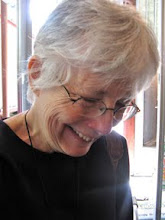He expanded: "The need for change" has been heavy in the rhetoric of all the politicians this year. The people have conveyed that message to their candidates, and although there has been debate on what change and why, and how much and what form it will take, no candidate has been stupid enough to say. "Things are just fine the way they are." Each contender wants to be seen as the agent of change, and therefore... get elected.
Moses was the agent of change for the people living in oppression in Egypt. He led them out and through the Reed Sea* and the jubilant song of praise on the banks could be likened to any celebration at party headquarters when the poll results are in.
Fast forward a few months and the people were dying of thirst. They were murmuring against their agent because the requested change didn't exactly meet their expectations. "Why did you bring us out of Egypt to die here?" Death is death. Better to have died with a full stomach than a parched throat.
For the Hebrew people, their new found freedom didn't look so good once they were dying of thirst. They had cried to God for deliverance from the oppressor Pharaoh, but on the edge of the barren wilderness they had to look for a new oppressor. Moses got the vote. Why was that? Was the price too high in the way of creature comforts? Too high in the sense of lost security? They had not had much in the way of comfort in Egypt, nor had there been security. What then, had they expected from change? Easy answer: that their lives be... if not perfect, at least better.
But in order for that to happen the whole concept of change for change's sake needs to be revised.
- Change needs a goal beyond itself; change should be a means not an end.
- We must carefully examine the difference between change from and change to.
The question our celebrant raised (and one we should be looking to answer after November 11th) is this: What are we willing to trade for our freedom?
*Yes, it really was the Reed Sea... some translator got it wrong... a long time ago.




No comments:
Post a Comment